The Hunger Man, Scott D Pomfret
Publisher: NineStar Press
Tags: Literary, Fiction Based Around Historical Events – Great Potato Famine Ireland, Family, Fae, Folklore, Mythology, Religion, Romance/Obsession, Predictions/Farsight, Storytelling
Length: 384 Pages
Reviewer: Kazza K
Purchase At: amazon.com, NineStar Press
Blurb:
At the outset of the Great Irish Potato Famine of 1845-50, a family of Irish revolutionaries attacks a British food convoy and kidnaps a young English officer named Julian Hawke. This first act of overt rebellion unleashes a series of events that both inextricably ties the O’Rahilly clan to Hawke and to the gay seanachie (storyteller) Ciaran Leath, but also seals their fates.
The only daughter, Muireann O’Rahilly, an aspiring physician, fails to resist the strong mutual attraction between her and Hawke. Hawke tries to balance his love for Muireann and his growing love for Ireland with his duty to suppress the budding rebellion. Ciaran Leath, who falls in love with both Julian Hawke as well as an angelic young tinker man, foresees both the coming famine and the disintegration of his adopted O’Rahilly clan, but finds himself unheard and powerless to protect them—or himself. Encountering spirits of the dead and other bad portents, Ciaran Leath invokes his old benefactor, the ancient Faerie Fin Bheara, but in doing so learns something devastating about himself and of what he is capable. When the O’Rahilly clan sets its sights on assassinating Queen Victoria, whom Hawke is sworn to protect, during her 1848 state visit to Cork, the stakes loom large for all involved, and the story turns inexorably toward a tragic end.
Against the backdrop of the terrible beauty and exquisite misery of southwestern Ireland during the famine years, this part-comic, part-romantic struggle against starvation, oppression, and one’s own worst impulses plots an epic arc from London and Dublin to Cork and New York City. Magic, Faeries, haunts, spirits, legends, ancient kings, monsters, and lovers richly populate this clash between the British Crown and the Irish people, and there can only be one survivor.
The Hunger Man contains adult content suitable for mature readers only.
**TREAT AS A SPOILER REVIEW**
Pre-Review:
Ireland is in your hands, in your power. If you do not save her, she cannot save herself. I solemnly call upon you to recollect that I predict with the sincerest conviction that a quarter of her population will perish unless you come to her relief.
Daniel O’Connell to the British House of Commons, 1847.
The Great Potato Famine was a truly horrendous period in Irish history. Many people died, records were not terribly accurate, with approximately 1.5 million deaths attributed to the famine and resultant disease, approximately another 1 million who emigrated to England, Canada and America or were transported to Australia. The figures were likely higher, but those stats are bad enough. The Hunger Man deals with part of that period in Ireland, primarily between 1845 and 1848. It’s based around facts and includes Irish folklore, humour, religion, culture and mythical elements as part of the narrative. If you ever have a chance to read more about the Great Potato Famine I would encourage it but be prepared because it’s utterly heartbreaking. England handled the situation abysmally, their disdain of the Irish culture and their habit of taking land from the Irish, and extorting rent, was embedded deeply. A few tried to raise their voice but with cholera and typhus added into the mix after years of famine, their voices were drowned out by those who resented the Irish. The lasting effects, the knock-on of the Famine, changed the landscape of Ireland forever.
Review:
I think the best way for me to review The Hunger Man is to look at the three narrators. I miss a lot by doing so but there are 95 status updates on Goodreads and I can’t cover everything in such a sweeping book. I believe that whoever reads the book will have definite opinions of their own about all the characters, particularly the main voices that interlock and weave you through their world, through a story that is lyrical but not pretty. There were characters I loved, they were flawed but I loved them nonetheless, maybe more because of the imperfections. There were some I had the utmost respect for and others I didn’t care for. Even if I was sympathetic and even if I understood that desperate times, poverty, starvation, brutal colonization mentality and deeply-rooted cultural beliefs rode and drove all individuals, I loved some and not others, no matter the side.
MUIREANN O’RAHILLY aka Dochtúir. Muireann is the only female in a house of six males. Her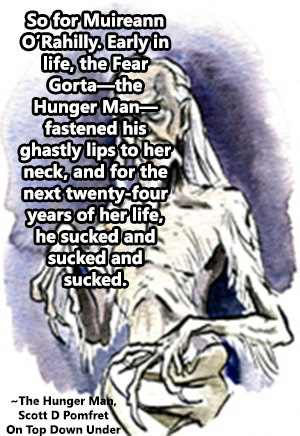 mother is dead and she lives in their home, Rath O’Rahilly, in Fionnatuam, a town in southwest Ireland, with her father, four biological brothers and Ciaran Leath, an adoptive brother of sorts, a seanachie, who their mother brought into the fold. A family likened to Irish kings, The O’Rahilly’s have fifteen acres, which is a near rarity for people who aren’t Anglo-Irish or actually English. Muireann is educated well and is smart, beautiful, hard working… but born in 1822, a year of a famine. No one will have a woman born in a famine year no matter her family or how beautiful, because she will never be ‘satisfied’, will be hard to please, and the curse looms large over her.
mother is dead and she lives in their home, Rath O’Rahilly, in Fionnatuam, a town in southwest Ireland, with her father, four biological brothers and Ciaran Leath, an adoptive brother of sorts, a seanachie, who their mother brought into the fold. A family likened to Irish kings, The O’Rahilly’s have fifteen acres, which is a near rarity for people who aren’t Anglo-Irish or actually English. Muireann is educated well and is smart, beautiful, hard working… but born in 1822, a year of a famine. No one will have a woman born in a famine year no matter her family or how beautiful, because she will never be ‘satisfied’, will be hard to please, and the curse looms large over her.
Muireann is known for stockpiling and being careful with regards to food, some say stingy, because of the constant worry about the Fear Gorta. You never know when the famine is coming. She’s also known for praying with a fervour and devotion that surpasses even her local town and parish. Because if you overpower the Almighty with prayer He may just be too busy to notice a fault.
Regardless of conditions, Muireann forced a fast once a fortnight, as if choosing a lesser hunger might ward off the greater involuntary affliction, and she prayed with a ferocity that won her a name for piety in Fionnatuam, a parish thoroughly steeped in it.
Somewhat like a three-leaf clover, Muireann leaves her beliefs open to God, the fae and science, which is not the usual for a woman of her time. Muireann wants to be a doctor and, above all else, likes to heal where she can. Apart from the farm, The O’Rahilly – the Catholic honorific for her father – has an apothecary which interests her much more than tending the land. When her brother, Aengus, and his newly formed rebellious crew capture a giant of an English soldier heading up a convoy of food, she attends to his wounds. When Aengus is talking about dispatching him Muireann speaks up for him; when Aengus doesn’t want him to leave, Muireann leads him away blindfolded on the back of an ass so he’ll find help without knowing their location. The English soldier, Julian Hawke, is smitten with the beauty, intelligence and compassion of this slip of an Irish woman but also aggravated at having been captured. From this point on all of them are on a collision course. Murieann has her own thoughts on Julian Hawke as well, which are at war with her Catholicism and culture.
She had an idea of putting as many miles between herself and the English officer in the shortest amount of time possible. Not out of fear, but out of shame. What kind of a woman was it whose mind could not stop with the filthy thoughts of a man representing the force that oppressed her entire country? She needed to get herself to a confessional.
Muireann loves her father and Aengus but when The O’Rahilly is imprisoned and hanged, and Aengus heads up the family, she very much wants to please her brother, even if that now means rebellion instead of Monster rallies. Even if that now means getting her hands dirty and killing those who would turn them out, starve them and hang them. Even if it now means getting close to Julian under Aengus’ instruction when she wants and needs to keep far away from the English soldier.
Muireann is an interesting character. Her wit is keen, defensively acerbic and, at all times, wonderfully observational.
“Even the Holy Father newly elected is said to have liberal sympathies.”
“Go on,” Muireann cried. “Listen to you citing the Holy Father as evidence when you haven’t a scrap of faith in you.”
“You miss the point,” Aengus said shortly.
…
“Yes, Aengus,” she said, “it certainly wouldn’t do to let scientific fact get in the way of your revolution, would it? There’s no glory to feed men’s egos.”
She’s well versed in her place in family, society – although she’s outspoken for a woman – and other people’s behaviour, except for Julian who, on occasion, perplexes her. She’s fiercely independent and expects little more than hardship after being born under the shadow of the Fear Gorta, and when the one man who wants her comes along it’s the wrong man for the wrong times. Another curse. Her scientific leanings may be fine with her Catholicism but they cannot stand the test of powerful personal superstition, environment, and familial love.
“How can you really say you love me?” she asked quietly. “It will never work out. You’ll grow bored of the novelty of me. Or my brother will kill you.”
“No!” he said softly. “No! Never!”
Of all the characters in the book Muireann changes the most through her experiences. Where she once saw some hope, as the famine drags on, she now sees none. Where she once believed firmly in 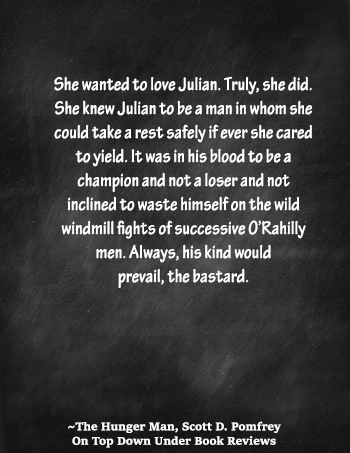 God he has deserted her, and where she once saw science as an answer to famine she can’t crack why some fields have not been impacted but most others have. It’s compounded when Aengus has her doing things she wouldn’t ordinarily do and she does it through her utter devotion to him. On top of losing her beloved father, seeing the full extent of the Famine – in 1847 when taking Julian around southwest Ireland at Aengus’ behest – having a baby in the middle of the famine, a bastard who is half Irish half English, and having to deal with traitors and exploiters is enough to change the most well meaning soul. It’s all too much. Infuriatingly to Muireann, Julian offers her things which, ever the realist, she knows he can’t deliver, they can never happen, not for her or their son. She does what she must but still asks for nothing even though Julian fervently chases her and earnestly promises a better life. No matter what, Muireann is a survivor. But sometimes surviving is not all it’s cracked up to be.
God he has deserted her, and where she once saw science as an answer to famine she can’t crack why some fields have not been impacted but most others have. It’s compounded when Aengus has her doing things she wouldn’t ordinarily do and she does it through her utter devotion to him. On top of losing her beloved father, seeing the full extent of the Famine – in 1847 when taking Julian around southwest Ireland at Aengus’ behest – having a baby in the middle of the famine, a bastard who is half Irish half English, and having to deal with traitors and exploiters is enough to change the most well meaning soul. It’s all too much. Infuriatingly to Muireann, Julian offers her things which, ever the realist, she knows he can’t deliver, they can never happen, not for her or their son. She does what she must but still asks for nothing even though Julian fervently chases her and earnestly promises a better life. No matter what, Muireann is a survivor. But sometimes surviving is not all it’s cracked up to be.
CIARAN LEATH aka Seanaiche, aka Puck. Ciaran is the most complex character of the book. I swear two different readers will take away two different interpretations of who and what he is. His inner and outer voices are so very different that it really was a necessity that he was one of the narrators.
I shall never have children in the normal way, but the ripples in the world after me shall testify I was indeed here, though I stand but—yes—half a man tall.
Ciaran is small, claims to be half fae, his mother having been kidnapped by a human and there’s a  big taboo attached to that in the sidhe world. To hear Ciaran tell it, he was left on this side from Faerieland by Fin Bheara when he grew tired of Ciaran. From here the O’Rahilly’s took him in as part of their family. Small in stature, he looks like a boy and has the reddest hair, and is prone to jibber-jabber and flitting about, with farsight, spirits and fae in his mind. Plus Ciaran has stories aplenty, ready to spout out of his mouth at the first need or request. He uses the seanachie skill to lift spirits, get himself out of tight spots or to have a bit fun. The only person that he doesn’t get along with in Rath O’Rahilly is Aengus, who calls him Molly, Molleen or any number of queer insults.
big taboo attached to that in the sidhe world. To hear Ciaran tell it, he was left on this side from Faerieland by Fin Bheara when he grew tired of Ciaran. From here the O’Rahilly’s took him in as part of their family. Small in stature, he looks like a boy and has the reddest hair, and is prone to jibber-jabber and flitting about, with farsight, spirits and fae in his mind. Plus Ciaran has stories aplenty, ready to spout out of his mouth at the first need or request. He uses the seanachie skill to lift spirits, get himself out of tight spots or to have a bit fun. The only person that he doesn’t get along with in Rath O’Rahilly is Aengus, who calls him Molly, Molleen or any number of queer insults.
It’s a perilous role, requiring the shifting of shapes, and to each O’Rahilly I must needs show a different face, so he might be content and look on the others with love.
Fin Bheara, a king among the sidhe, visits Ciaran here and there during the book. Ciaran is certain it’s when Fin misses him most and wants him back in Faerieland. This flies in the face of the snarky dialogue Fin Bheara tosses his way and the banter between Ciaran and Fin is humorous and insightful. On one occasion Fin gifts Ciaran a much loved dog, Brian Boru, who accompanies him through most of the book and, like his namesake, Brian Boru is tough as teak. But it appears there is something Fin Bheara does want from Ciaran, it’s to do with a curse and a perceived insult from the O’Rahilly’s. Likewise, as life becomes more miserable, Aengus wants Ciaran to be involved in spying on his behalf, to help him and the rebels (Young Ireland.)
Ciaran Leath is one hell of a narrator and to be caught up in his mind is, at times, akin to being on acid… or we’ll just say fairy dust. He’s smart, intuitive, humorous, cunning and, while respecting the seanachie in him, a few people view him as “feeble.” Certain events he foretells seem to come to fruition, though, so he’s often asked about life or death, although Ciaran will be the first to tell you that there are no dates, timings or certainty of the gift, or curse, of farsight.
One definite about Ciaran is that he becomes the (unwitting) heart at the thick of everything –  rebellious activities, goal, when he isn’t even arrested, New York, mind- numbing, soul-destroying famine and Aengus’ angry and often half-baked schemes and rebellion. He also finds himself travelling through Cork/ southwest Ireland with Muireann and Julian, telling a story or two, reporting back to Aengus with any intel from Balor’s military aides – Julian doesn’t know for some time that Ciaran speaks English, something Ciaran guards until necessary. He also falls for Julian and wants nothing more than to be physical with the handsome Englishman.
rebellious activities, goal, when he isn’t even arrested, New York, mind- numbing, soul-destroying famine and Aengus’ angry and often half-baked schemes and rebellion. He also finds himself travelling through Cork/ southwest Ireland with Muireann and Julian, telling a story or two, reporting back to Aengus with any intel from Balor’s military aides – Julian doesn’t know for some time that Ciaran speaks English, something Ciaran guards until necessary. He also falls for Julian and wants nothing more than to be physical with the handsome Englishman.
“No, Balor,” I said, “you will come to sing my song. I will lure you down from the saddle. Indeed, I will put your mare’s saddle on me some day. As the poet said, ‘One blast upon your bugle horn is worth a thousand men.’”
I really enjoyed Ciaran’s POV and felt his difficulty when the farsight left him and he felt the pain of not fitting in anywhere, of trouble, death and misery. But farsight is never far from a good seaniche and brave men come in many forms and sizes.
JULIAN HAWKE aka Balor, aka Field Marshall. Julian is despatched from England to Ireland in 1845 with an impressive military resume and an appropriate aristocratic background to head up the 37th Light Dragoons. At 6’6″ he is head and shoulders above anyone else, particularly in Ireland, and unbelievably noticeable in every way. He resolutely believes in his ‘peacekeeping’ mission to Ireland. By peacekeeping it is meant that he will be protecting convoys of food moving to port to be shipped to England from Ireland at the beginning (onwards) of the potato blight and famine. Ireland had famine before, but this one is different and came to be forever known as the Great Potato Famine. Not only was Ireland losing its national crop but whatever they did grow was now being shipped offshore when her own people were going hungry.
No, Julian’s duty was quite clear: no later than 1st November 1845, he was to take command of the 37th Light Dragoons at Cork and establish order and security in the southwest of Ireland so everyday commerce could be carried out without resorting to riot or mayhem.
His duties also entail collecting rents on behalf of British landholders to pay into British coffers. In typical fashion Julian’s uncle, Sir Arthur Chudleigh, owns Ditchbarrow, a large land holding with many Irish farming tenants. Because it was rare an Irishman had freehold land, as the famine spread so to did the tenants evictions.
“Well,” he said. “This state of lawlessness is unacceptable. The Third Irish will restore a state of order. You will get your rents, I assure you.”
“You don’t understand the Irish, my boy. They haven’t any concept of order. They are… How shall I say it? Much given to prejudice and impulse.”
What Julian didn’t count on was the Irish being somewhat different to the descriptions he’d heard back home. The women are attractive for a starter, blue-black hair and pale skin, small in build and stature. From their first encounter one woman alone stands out to Julian. After his recovery from being captured he meets up with Muireann on several other occasions, each one meaning more and more to him. The most significant is when they spend time travelling Ireland, with Ciaran in tow, and he gets to know her (as best anyone can.) He also gets to see first hand the starvation, the sorrow, and determination the Irish show in the face of growing adversity. Then there’s the stories that the seanachie spins of Ireland and of lore in his native tongue, which Murieann translates. They are as fascinating and tall as Ciaran is odd and short.
As Julian is at the coalface, he increasingly becomes involved in political quandary and sees how the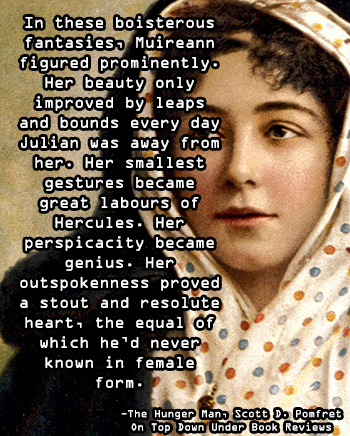 English are not doing much to answer a great need, and Julian is increasingly torn between duty and love. Is it love, though? It’s something I asked myself throughout. There was definitely an obsessive desire and an idealising of Murieann. I felt incredibly sad for Julian because, no matter what, he was a man of his breeding, a man who loved his country and a man full of duty and honour – when allowed to exercise it – growing ever-fond of Ireland and its people. With his beliefs being shaken it didn’t bode well. I watched and read Julian’s thoughts on the Muireann he first met and the Muireann who changed as Aengus became a figurehead for the family and through loss and through his righteous anger became more fanatical and revolution-bound. Julian could not see past the Muireann who first doctored him, showed mercy and kindness to an Englishman, set him free, to the Muireann who existed after hunger, death, having Julian’s bastard child and a lack of faith took a firm hold.
English are not doing much to answer a great need, and Julian is increasingly torn between duty and love. Is it love, though? It’s something I asked myself throughout. There was definitely an obsessive desire and an idealising of Murieann. I felt incredibly sad for Julian because, no matter what, he was a man of his breeding, a man who loved his country and a man full of duty and honour – when allowed to exercise it – growing ever-fond of Ireland and its people. With his beliefs being shaken it didn’t bode well. I watched and read Julian’s thoughts on the Muireann he first met and the Muireann who changed as Aengus became a figurehead for the family and through loss and through his righteous anger became more fanatical and revolution-bound. Julian could not see past the Muireann who first doctored him, showed mercy and kindness to an Englishman, set him free, to the Muireann who existed after hunger, death, having Julian’s bastard child and a lack of faith took a firm hold.
Julian was my favourite character because he was not particularly complex. He was honourable, even if he enforced increasing acts and laws that were ridiculous and unpalatable. Even if he felt he was peacekeeping but was actually helping English Parliament subjugate a race of starving people in their homeland. While this may sound like a dichotomy; while he was steadfast, duty-bound, and unswerving in his allegiance to England and his military position, he was also caring. He was sentimental and romantic, always seeing the positive and good right to the end. He admired Muireann’s intelligence and wanted to use that for a desired betterment, furtherance of a relationship between England and Ireland. I liked that he saw a woman as more than a pretty face, as someone with a sharp intellect. I loved that he enjoyed her forthright manner.
“Actually, I thought you might be the one advanced to oversee Ireland’s affairs. You or women like you.”
“Me?! A woman?!” Muireann laughed at the startling notion, and Julian was thrilled he had surprised her. “You,” he repeated.
“Oh, I was right from the beginning. For a Peeler, you are indeed a sentimentalist.”
“Do you not have the faith in yourself that I have in you?”
She looked at Julian with an emotion he couldn’t quite place, until he realized it was pity. (**Primarily because she knows what’s required by her brother, Aengus, for her to do as her part for Young Ireland. To do to Julian, and him a sentimentalist, so naïve and positive and gentle at the core.) Pity! From a poor Irish peasant girl! Pity for a soldier of the greatest Empire on earth! He refused to deliver another compliment to her until the expression was gone from her face.
“I thank you for your faith,” she said quietly. (**Because he confounds her.)
Julian’s rancour melted away.
Once he got to know Ireland, once he fell for Muireann, Julian was constantly pondering the Irish 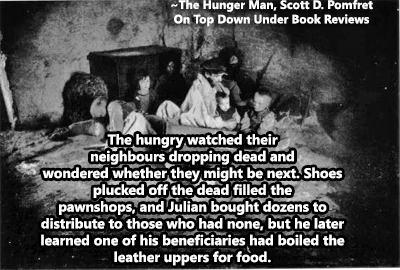 Question and trying to advance a solution that he saw as equitable. He was doomed because of his obsessive and quixotic love of Muireann and his wants and wishes for a future for his son, both of whom in actuality could never be accepted in either society or culture. He was doomed for upholding his duty in a bleak and inhumane situation. He was doomed for caring. He was doomed for trying to walk a middle ground. He was doomed because Ciaran knew it as soon as he touched him. He was doomed because he was my favourite character in an Irish literary novel.
Question and trying to advance a solution that he saw as equitable. He was doomed because of his obsessive and quixotic love of Muireann and his wants and wishes for a future for his son, both of whom in actuality could never be accepted in either society or culture. He was doomed for upholding his duty in a bleak and inhumane situation. He was doomed for caring. He was doomed for trying to walk a middle ground. He was doomed because Ciaran knew it as soon as he touched him. He was doomed because he was my favourite character in an Irish literary novel.
Overview:
The Hunger Man is a beautiful-terrible saga. There are six parts to the story, each part perfectly named and every chapter within a part is the voice of one of the three narrators. The years 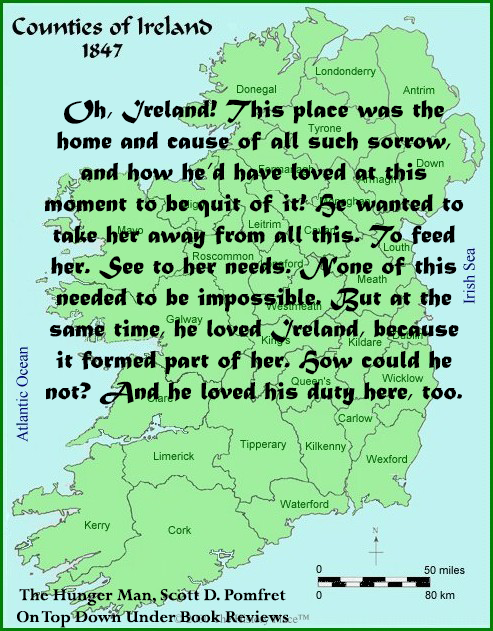 covered are lovingly written and detail minded. This book must have taken some time to write, it’s intense and took me a while to read – dates, names, folklore and fantasy versus realism, the Church, the people, the language. Second reads were sometimes required. The depth given to the characters, the detail afforded the period, the lack of authorial judgment that easily could have permeated the pages and tainted the story all made this book so very good. It’s easy to be angry with the British. It’s easy to be upset by the famine and treatment of the people of Ireland and by the scenarios that are played out against people I grew attached to. It’s easy to sit in judgement of the Irish who turned on their own. It was an awful period in Irish history and it was exacerbated by the lack of empathy and the seeming need for domination of a community-minded, superstitious and religious ‘tribe’ of people at their own expense. Traitors and opportunists loomed large as they do in any period of human suffering. The Church is not heavily mentioned but it’s always there, likewise superstition weaves throughout but it’s not often (overtly) labelled. Everything is given a deft touch, including the humour, which is undeniably Irish.
covered are lovingly written and detail minded. This book must have taken some time to write, it’s intense and took me a while to read – dates, names, folklore and fantasy versus realism, the Church, the people, the language. Second reads were sometimes required. The depth given to the characters, the detail afforded the period, the lack of authorial judgment that easily could have permeated the pages and tainted the story all made this book so very good. It’s easy to be angry with the British. It’s easy to be upset by the famine and treatment of the people of Ireland and by the scenarios that are played out against people I grew attached to. It’s easy to sit in judgement of the Irish who turned on their own. It was an awful period in Irish history and it was exacerbated by the lack of empathy and the seeming need for domination of a community-minded, superstitious and religious ‘tribe’ of people at their own expense. Traitors and opportunists loomed large as they do in any period of human suffering. The Church is not heavily mentioned but it’s always there, likewise superstition weaves throughout but it’s not often (overtly) labelled. Everything is given a deft touch, including the humour, which is undeniably Irish.
In the wash-up, The Hunger Man is very much a character-driven story with three memorable POVs and excellent supporting characters. The story takes time to build with no happy ending, and is probably not going to suit people who primarily look for a fast pace and a neatly tied up conclusion. I believe there is a queer label given the book but, apart from the fact that Ciaran Leath is obviously gay and Finn Bheara likewise – preferring males over females in this telling – it really shouldn’t be pigeonholed. It’s subtle and fierce and tender and heartbreaking and funny, and it truly is written as a literary historical Irish tale – it’s inherently sad, funny, poetically tragic and full of lore and meaning. Because of all the feelings I experienced, and there were plenty of those. Because of the beautiful writing. Because of the diverse, fully realised and brilliantly orchestrated and interconnecting characters, and thus the wonderful tale that was spun, and because I lived it all, felt it all, every single minute of it, I give The Hunger Man 5 ‘Three-Shot, Threefold Death’ Stars!

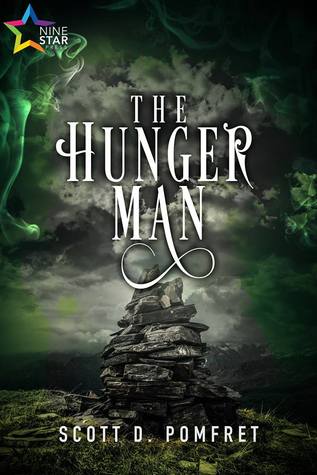
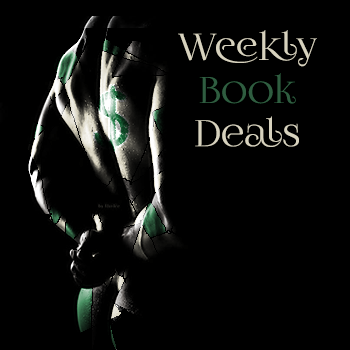
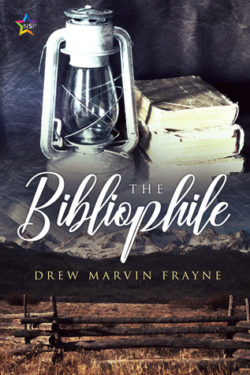

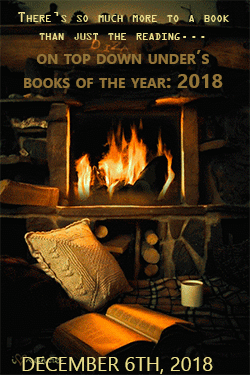
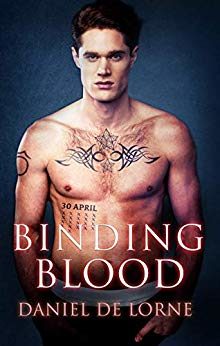
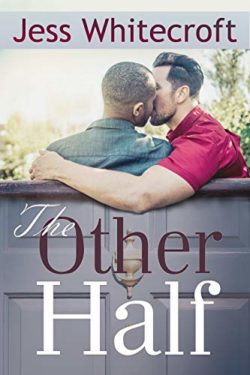
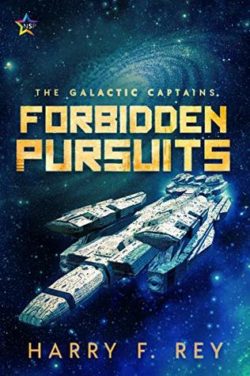
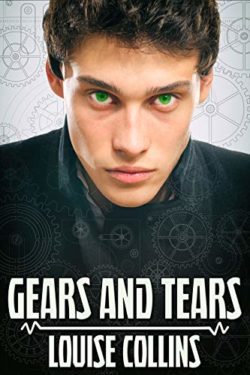
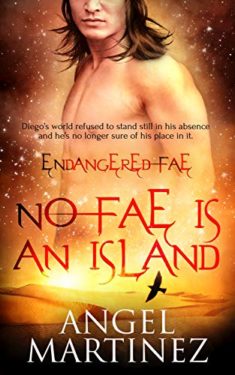
Kazza:
Thank you so much for the fantastic review — I’m flattered you took so much time with it and completely understood what I was trying to accomplish. go raibh míle maith agat — a thousand thank yous!
Scott
You’re welcome, Scott. Talk about a labour of love. This book positively radiates passion and deserves lots of reading and reviewing 🙂
Cheers for the thousand thank yous 🙂
This sounds like something I need to pick up. Lovely review and it is nice knowing there is a writer out there who isn’t pushing out the trite drivel of today; one who languishes over a period, a tale, a state of being, all in a time very different than today. I will order this book today and can’t wait to fall into something that isn’t the typical Pablum of what is trending yet sorely insignificant in the end…sounds like a sweeping epic that I can get into.
It’s a very good book, Rodd. I hope you do grab a copy and read it.
There are many countries that benefitted from the Famine and emigration of the Irish. It was a wretched shame for Ireland with families torn apart. Another comprehensive review of a book that I would not have known of otherwise. I noticed you have another of this writer’s books on Goodreads as a TBR and I’m interested to see what you think of that one.
Yes, there are many countries who benefitted from the Irish, Australia being one of them. The Irish who came here, often as convicts, were the backbone of a strong, tough, hardworking and resilient nation and we owe them a great deal. But the circumstances around it were horrible – both the Famine and being a convict here.
Thanks, as always, for your kind words. Hmm, which book? I marked a couple as TBR… but I will be reading a couple more by this author soon 🙂
Wow…. what a review. I knew from conversations we’ve had behind the scenes that The Hunger Man was a complex story. And I know how difficult it had to be for you to put your thoughts into words. You sucked me in from your pre-review and I found myself completely invested in all the characters and their stories before I got to the end.
Fantastic review. I love the photos, GIFs, and quotes.
Thanks, Cindi. Much appreciated 🙂 I actually went a bit nuts with quotes and have more in pics/memes that I’ll put up on Pinterest at some stage.
It is a hard book to review because it’s sweeping and it’s complex and written around actual events. It is also beautifully written which makes you want to do the book justice in a review. Oh yes, you always get my outer ramblings about books I’m reading 🙂 Pfft,… aren’t you lucky? lol
It’s one hell of a book and I hope people buy it and read it. I really do.
ohh sounds great, I won’t read the entire review yet but it looks excellent Kazza
I have to admit that it’s one long-arse review, Paul 🙂 Great book, particularly if you like Irish history… with some fae/lore elements mixed into a literary work.